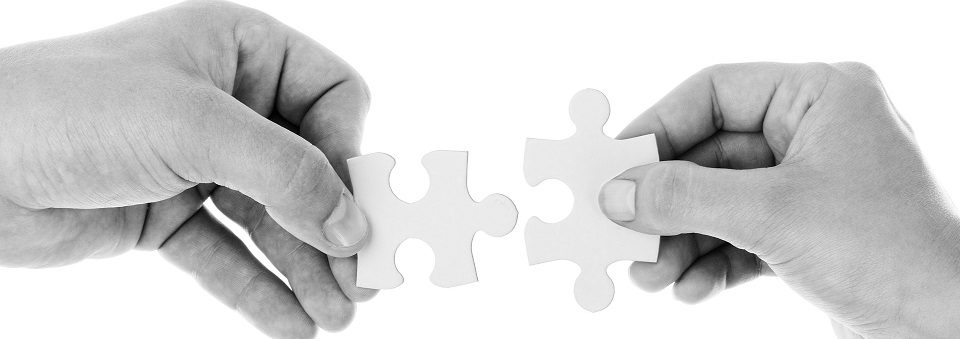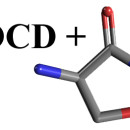Popular Posts
Want to become a patient?
Upcoming Events
Most Recent Articles
Pure-O OCD Rituals: Starting Over, Resetting, & Undoing
Question: It’s hard to describe this, but I feel like every few days I need to mentally “start over” by doing a variety of mental and behavioral rituals. I don’t want to live like this, but I’m afraid that if I undergo treatment and stop my OCD rituals, I won’t be the same person with the same drives. Starting Over, Resetting, & Undoing Compulsions in OCD First, please rest assured that you’re not alone in experiencing these symptoms. Many people with OCD (“Pure-O” or otherwise) refer to them as “starting over” compulsions, “resetting” compulsions, or “undoing” compulsions, which serve the function of returning to a clean mental slate. Sometimes these compulsions consist of particular movements, self-statements, mental activities, or complex rituals with both behavioral and mental components. They are not as common as other types of rituals (e.g., washing, re-arranging), but they’re more common than you might think, particularly in Pure-O OCD. Many people resist talking about them, because they fear that other people might not understand. Other rituals associated with Pure-O OCD are described here. There are two other terms that might describe some of what you are experiencing: emotional contamination (also referred to as mental contamination) and scrupulosity. Emotional Contamination (“Mental Contamination”) in OCD Emotional contamination refers to the fear of being...
Read MoreHealth-Related Anxiety: Symptoms, Disorders, & Treatment
Think about the most significant health scare you have ever experienced. Then multiply this experience by a factor of about 10. Unfortunately, this is a daily reality for many individuals suffering from health-related anxiety, a debilitating condition that can have devastating effects on one’s mood, relationships, and ability to function in academic and professional settings. What is health anxiety? Health-related anxiety is a general term that refers to intense fear or worry about one’s physical health. Fear about illness (or potential illness) might develop in situations in which an individual has a diagnosed medical illness. These health conditions might include: a diagnosed, progressive medical condition (e.g., worry about advancing symptoms of Alzheimer’s disease). a diagnosed medical condition that requires management and/or health behavior changes (e.g., anxiety following a diagnosis of diabetes or after experiencing a heart attack). a diagnosed chronic medical condition (e.g., worry about learning how to manage chronic pain). a diagnosed, single episode medical condition (e.g., fear about the reoccurrence of an injury). If you have never experienced serious physical illness, the impact of an unexpected health scare may be difficult to appreciate fully. Serious illness can highlight your own mortality and profoundly alter your worldview. A life that previously felt long and full of potential comes to feel fragile and tenuous....
Read MoreAgoraphobia – Symptom Attacks, Triggers, Panic, & Avoidance Behaviors
Let’s dispel a common misconception about agoraphobia. Agoraphobia is not a fear of the outdoors. Many people mistakenly believe this myth, due to the word’s Latin roots. Because agoraphobia can be broken down into the roots agora (“marketplace”) and phobia (“fear of”), many people assume that agoraphobia is a “fear of the marketplace” or a fear of being in wide open spaces. What is agoraphobia? However, this literal interpretation is different than what psychologists mean when they use the term agoraphobia. Clinical psychologists, therapists, and psychiatrists conceptualize agoraphobia as a fear of experiencing physical symptom attacks in certain types of situations (Zuercher-White & Pollard, 2003). Symptom attacks include full-blown panic attacks, limited symptom panic attacks (sweating, dizziness, disorientation, difficulty breathing. heart pounding, nausea), diarrhea, other gastrointestinal (GI) issues, vomiting, headaches, and feelings of dissociation, depersonalization, or derealization. Agoraphobia-related Situations The fear of having a physical symptom attack is often strongest in certain types of situations (Zuercher-White & Pollard, 2003), including those in which: Your symptoms might be embarrassing or are likely to be noticed by others. Escape is difficult or impossible. Help is not readily available. Restrooms are inaccessible (or not private). You have little personal control over the environment. Agoraphobia-related Avoidance Behaviors Fear of symptom attacks then contributes to avoidance behaviors and significant changes in...
Read MoreFear, Doubt, Uncertainty, ERP, & the Monster Under the Bed
Everyone I know has, at some point, had to deal with the monster under the bed. Some do it with grace. Others falter. I’ve always been clumsy. I can vividly recall many terrified nights from my childhood, when I would lie rigidly in my bed, utterly paralyzed by fear. Afraid to make the slightest movement, to breathe, to call out for my parents…lest I be detected by IT. The pounding of my heart would be so loud in my ears, and my breathing so ragged, that I could swear the entire house could hear me. And yet…no one came to help. The moment would stretch out like taffy. At some point, my raw fear would ever so subtly decline, freeing me up to end the stalemate in one of several ways. Some nights, I would call out for help. On other nights, I would launch myself out of bed and across the room to flip on the light-switch, banishing the darkness with welcome illumination. However, in retrospect, the most helpful nights were those nights I didn’t look. On those nights, my stubborn streak would embolden me to hunker down and not look. I would sit in bed with fear, doubt, uncertainty, and resolve. “Bring it on, monster.” And you know what? The monster never...
Read MoreMindfulness & ACT-based therapy: Questioning “I hurt; therefore, I suffer.”
Mindfulness & ACT-based Approaches to Therapy Mindfulness & Acceptance and Commitment Therapy (ACT)-based approaches to treatment might (Hayes, Strosahl, & Wilson, 2003) ask you to consider the truth of the following statement: I hurt; therefore, I suffer. Most of us would probably agree that suffering is usually borne out of hurt. But this doesn’t mean that pain, discomfort, or unwanted emotions necessarily lead to suffering. In truth, many hurts do not lead to suffering. Pain and suffering are distinct entities that exist on two entirely different planes. Pain is based on an experience, whereas suffering is based on how we perceive that experience. In many cases, we may not be able to sidestep pain or hurt; however, suffering may be a different matter. Pain Think about the last time you felt physical pain. Maybe you’re feeling it right now. You might consider the aches of tired joints, the familiar sting of chronic pain, the drawn-out burn after a workout, or even the experience of stubbing your toe. Consider what your pain feels like. Where is it located? Is it a sharp or dull pain? Constant or throbbing? Growing in intensity or fading? Take a moment to really look at your pain. Examine it. Probe it. Accept it as it is. Own it. To do...
Read MoreSocial Anxiety Treatment: CBT & Intentional Mistake Practice (an example)
When I was a kid, one form of mischief that was briefly popular in my neighborhood was crank calling strangers. Usually, the bravest kid in the group would pick up the phone, and with the encouragement of all the other kids in the room, would dial a random telephone number. A brief, very Bart Simpson-esque conversation would then ensue. Usually it would go something like this: Kid: Hello, ma’am. I am conducting a brief survey for the Grocer’s Association. Do you have a minute to answer a quick question? Stranger: Of course. How can I help you? Kid: I was wondering if you have Sara Lee in the freezer. Stranger: Why, yes I do. Kid: Well then let her out!!! We would then bust out in laughter and hang up the phone, leaving the recipient of our phone call both perplexed and annoyed. This process would typically repeat itself two more times before we got distracted by something more entertaining. It’s pretty interesting to consider in retrospect. What strikes me is this: Typically, the bravest kid in the group would make the first phone call. However, once the ice was broken, kids of nearly any temperament would then follow. Even kids who were shy by nature became emboldened after making just a few phone calls. In...
Read MoreOCD & D-cycloserine: A Promising Medication for OCD Treatment
As someone who has long been enamored with basic science, I find it fascinating when classic medications are re-purposed in surprising ways. One of the newest examples of this is the use of D-cycloserine (also known as Seromycin) in the treatment of obsessive-compulsive disorder (OCD). What’s interesting about D-cycloserine is not so much what it is…but what it isn’t: D-cycloserine is neither an SRRI nor any other type of antidepressant (e.g., Prozac). It’s not an anti-anxiety medication (e.g., Xanax, Klonopin). It’s not even an atypical antipsychotic (e.g., Abilify, Risperdal). If it’s not one of the above, then what is it? The answer might surprise you. Seromycin is actually an antibiotic that was originally developed to help fight off tuberculosis. What’s exciting about using an antibiotic to treat OCD is that it’s not subject to the same side effects as other medications (i.e., the SSRIs, anxiolytics, or antipsychotics). In fact, most clinical studies have found few, if any, significant side effects when using D-cycloserine in OCD treatment. Before I go further, there’s an important caveat to keep in mind: Research on D-cycloserine in OCD treatment is still a work-in-progress, so it’s important to maintain some healthy skepticism on this issue. Research studies looking at using D-cycloserine to treat OCD have been fairly limited, and the results of these studies have been mixed. Some...
Read MoreTherapy as Science: You + Your Therapist + Scientific Method
I consider myself a scientist. I wear this hat officially when conducting research, but I also wear it every time I sit with a patient. In my research, my science is pretty self-evident: I identify a research question, develop falsifiable hypotheses, and then collect quantifiable data to see whether or not the phenomenon I’m studying behaves the way I think it does. A very similar process unfolds when I work with you in my clinic. However, from your vantage point, you might not realize it right away. Nevertheless, we are two collaborative empiricists. Most often, you will define the “research question”. Usually, this is the very reason that you’re coming to see me. Sometimes the questions we think we’re asking are not necessarily the ones we should be asking. For example, questions like, “Why is this happening to me?” are often disguised ways of asking, “How can I change this?” If that’s the case, I’ll help you refine your question. Our questions will also be guided by the data you bring to your initial assessment. These data points include your responses to various questionnaires, as well as other important information we discuss (e.g., current symptoms, symptom history). Next, we’ll develop hypotheses about which strategies are most likely to be helpful for you. Since I’m...
Read MoreThe Power of Being Selfish: Selfishness as a Key to Mental Health
I’m about to tell you something that your mother might not approve of…so for those of you sensitive souls out there, you might want to click on something less controversial. Here it is: It’s okay (and sometimes even essential!) to be a little bit selfish. Conventional wisdom, and our parents, often tell us that it’s not okay to be selfish. If you want to be an effective parent, you must learn to put your kids’ needs before your own. Likewise, to be a good spouse, you must learn to honor your partner’s needs. These are truths, and if you aren’t living these truths in your daily life, it is likely that your relationships have suffered. However… As with anything, these truths must not be taken to extremes. I found myself thinking about this idea over the weekend as I was talking to a friend going through a particularly challenging situation. In some cases, to be healthy, wealthy, and wise…we need to make specific efforts to honor our own needs. If we don’t, we run the risk of completely burning ourselves out and suffering the ill effects of depression, stress, and anxiety. What do I mean by honoring our own needs? Some examples of this might include: Celebrating your own successes at work, school, and...
Read MoreSymptoms of Depression / Major Depressive Disorder (MDD)
Signs of depression can be obvious or subtle, but regardless, they often severely impact your quality of life. For help in addressing your symptoms of depression, seek the assistance of a therapist or psychologist trained in cognitive behavioral therapy (CBT), which is an evidence-based treatment for depression. This will help reduce your symptoms and make you less prone to future relapse. I am available for consultation and treatment in the Palm Beach (Palm Beach Gardens, Jupiter, West Palm Beach, Boynton Beach, Boca Raton), Fort Lauderdale, and Miami communities. I also welcome you to read my previous post on how depression can be easily overlooked in yourself or others. Here is a list of common symptoms of depression, also known as major depressive disorder (MDD): Symptoms of Depression Emotional Symptoms Feelings of sadness, emptiness, loneliness, or pointlessness. Feelings of worthlessness, guilt, hostility, or aggression. Overwhelming feelings of grief, loss, hopelessness, or despair. Frequent explained or unexplained crying episodes. Loss of interest in enjoyable activities (e.g., hobbies, socializing). Recurrent thoughts of self-harm, death, or suicide. Social/Occupational Symptoms Becoming overly-apologetic. Getting into frequent fights or disagreements with others. Having a low tolerance for frustration. Skipping events because you don’t want to “bring other people down”. Deteriorating or strained relationships. Disinterest in other people (e.g., ignoring spouse, kids). Social...
Read MoreDepression / Major Depressive Disorder (MDD): The (Sometimes) Hidden Ailment
For some individuals with major depressive disorder, signs of depression can be pretty obvious. Depressive symptoms can be utterly disabling and leave you with very little hope that things will ever get better. Depression can make you feel like giving up or actually cause you to give up. But in other cases, depression can be nearly invisible to both the sufferer and his/her family, friends, and colleagues. In fact, some people who are depressed don’t even realize it. They entertain this distorted fantasy that all depressed people look the same. They imagine that people with major depressive disorder cry all day, can’t hold down jobs, and aren’t doing anything particularly “meaningful” or “worthwhile.” However, depression affects CEOs, bank presidents, actors, politicians, doctors, and lawyers just as easily as anyone else. It’s an equal opportunity ailment. Some depressed people walk around cloaked in such an aura of success that other people don’t even suspect that depression might be a possibility. In other cases, depression manifests as hostility and aggression, and in doing so, causes others to view the depressed person as cutthroat and cruel (rather than depressed). In both situations, it is easy for depression to go undetected and untreated. And kids and teens are vulnerable to depression too. Depression looks different in different people. That...
Read MoreSchool Refusal & Parental Stigma: Am I a Bad Parent?
Like any other behavior, school refusal does not have a singular cause. This is pretty self-evident, but in the heat of the moment when your child is having a tantrum, this fact is quickly forgotten. It is simply too easy to conclude that you have raised a “bad child.” Sadly, much of society might wrongly agree with you. For many, the term “school refusal” has automatic negative connotations. Although school refusal is a behavior that has many different potential causes, it often gets lumped together with rebelliousness, conduct problems, and oppositionality. This is unfortunate because many cases of school refusal do not actually involve any of these factors. Am I a Bad Parent? Parent Social Stigma in School Refusal. Regardless of the origins of your child’s school refusal, it is important to consider a separate parent-related factor that maintains school refusal: your fear of being perceived as a “bad parent”. Although parental stigma does not cause the development of school refusal, it can certainly feed the problem. Your fear of how others might perceive you or your parenting skills might unwittingly cause you to reinforce your child’s school refusal. Because many parents value education and pride themselves on having well-behaved, well-adjusted children, it can feel embarrassing when your child is refusing to go to...
Read MoreSchool Refusal Causes (Social & Anxiety-Related Factors)
With the summer quickly fading to black and the academic year looming largely, we will soon be entering the season of school refusal. When I use the term “school refusal,” I’m not talking about that once-in-a-blue-moon occasion when a child forgets about an important test or project and decides it’s easier to feign illness than face the music. That’s pretty typical for nearly all kids, and it doesn’t necessarily establish a pattern of problematic behavior. What I’m talking about is school refusal that is pattern-based, recurrent, and results in academic or social impairment. For assessment or treatment of school refusal, feel free to contact me at my private practice, which services Palm Beach (Palm Beach Gardens, Jupiter, West Palm Beach, Boca Raton, Boynton Beach), Fort Lauderdale, and Miami. What causes school refusal? Why do kids refuse to go to school? School refusal is not a random event. There’s usually a reason for why your child might resist going to school. However, reasons for school refusal are many and varied, and may require some genuine detective work to get to the root of the problem. Fortunately, school staff (e.g., teachers, school counselors, and school psychologists) are often able to provide you with some useful clues. Common Reasons Why Children Refuse School 1. Sometimes, children and...
Read MorePanic Attack Causes: Fight-or-Flight & the Sympathetic Nervous System
Panic attacks feel awful. However, despite the unpleasantness of panic attacks, we’re actually lucky to have the neural circuitry that drives them. Although it might not feel like it, panic is caused by one of your body’s most important self-protective mechanisms. What causes panic attacks? When we are safe, our bodies are designed to conserve resources in order to promote long-term survival. If all is going well, there is simply no need to squander a precious commodity like energy. However, whenever we are in danger and there is the potential for death or serious harm, our bodies will utilize whatever resources are necessary to guarantee that we live to see another day. Think about a time you unexpectedly encountered a physical threat in your environment. Maybe you were peacefully gardening when you happened upon a snake. Maybe you were out for a stroll when an unfamiliar dog ran up to you with its teeth bared. Maybe you were happily picnicking in Jurassic Park when you suddenly came face-to-face with a velociraptor. What are your options? You essentially have two: Fight – You can go head-to-head with the threat in order to neutralize it. Flight – You can escape the situation by evading the predator. Regardless of which option you choose, the success of your...
Read MoreOne Panic Treatment Basic that Even Your Therapist Might not Know
If you have panic disorder or suffer from panic attacks or agoraphobia, chances are you might be inadvertently doing one simple thing that is making your panic attacks and anxiety worse. You might have even learned this strategy from your therapist. Although beneficial in many different contexts, when used inappropriately, this technique has the potential to dramatically increase symptoms of anxiety and panic. The technique in question? Deep breathing. What is deep breathing? Deep breathing, or diaphragmatic breathing, is a core coping skill taught by many excellent therapists of diverse theoretical orientations. It is a technique that has a long and revered history in the field of psychology due to its anxiety-reducing (anxiolytic) effects. Used alone or when combined with other strategies, such as visual imagery or progressive muscle relaxation (PMR), deep breathing can be a potent aid to relaxation. It is applicable to a wide range of stressors, requires no equipment aside from what you carry around with you in your head, and can be brought to bear quickly and discretely at work, school, or any other place you might need it. As such, deep breathing is a powerful technique to have in your coping toolkit. In addition to being useful for managing anxiety, proficiency in regulating your diaphragm also increases your vocal...
Read MoreTest Anxiety Treatment & Diagnostic Considerations
When considering treatment for test-taking anxiety, make sure that you have a comprehensive diagnostic assessment to rule out other possible causes of your symptoms. Not all cases of test anxiety are alike, and sometimes symptoms of test anxiety actually reflect a separate, underlying condition. If you’re located in South Florida (Palm Beach Gardens, Jupiter, West Palm Beach, Fort Lauderdale, Boca Raton, Boynton Beach, & Miami), I would be happy to meet with you to conduct an assessment of your symptoms and provide treatment (if appropriate). Regardless of where you live, here is a short list of factors to consider when getting help for your symptoms: Test Anxiety Diagnosis & Treatment Strategies 1. Don’t assume that just because you have test anxiety that the problem is only test anxiety. Test performance issues may also have an independent panic component. If panic attacks are ignored or left unaddressed, treatment is likely to fail. 2. The very characteristics that make some individuals successful can serve as liabilities for others. Characteristics like perfectionism and other obsessive-compulsive traits can be associated with pathological doubt, which can induce panic attacks, increase test-taking time, and lead to procrastination and avoidance of essential test preparation. If this is the case, the most effective treatment would address these characteristics, not the test anxiety...
Read More




































